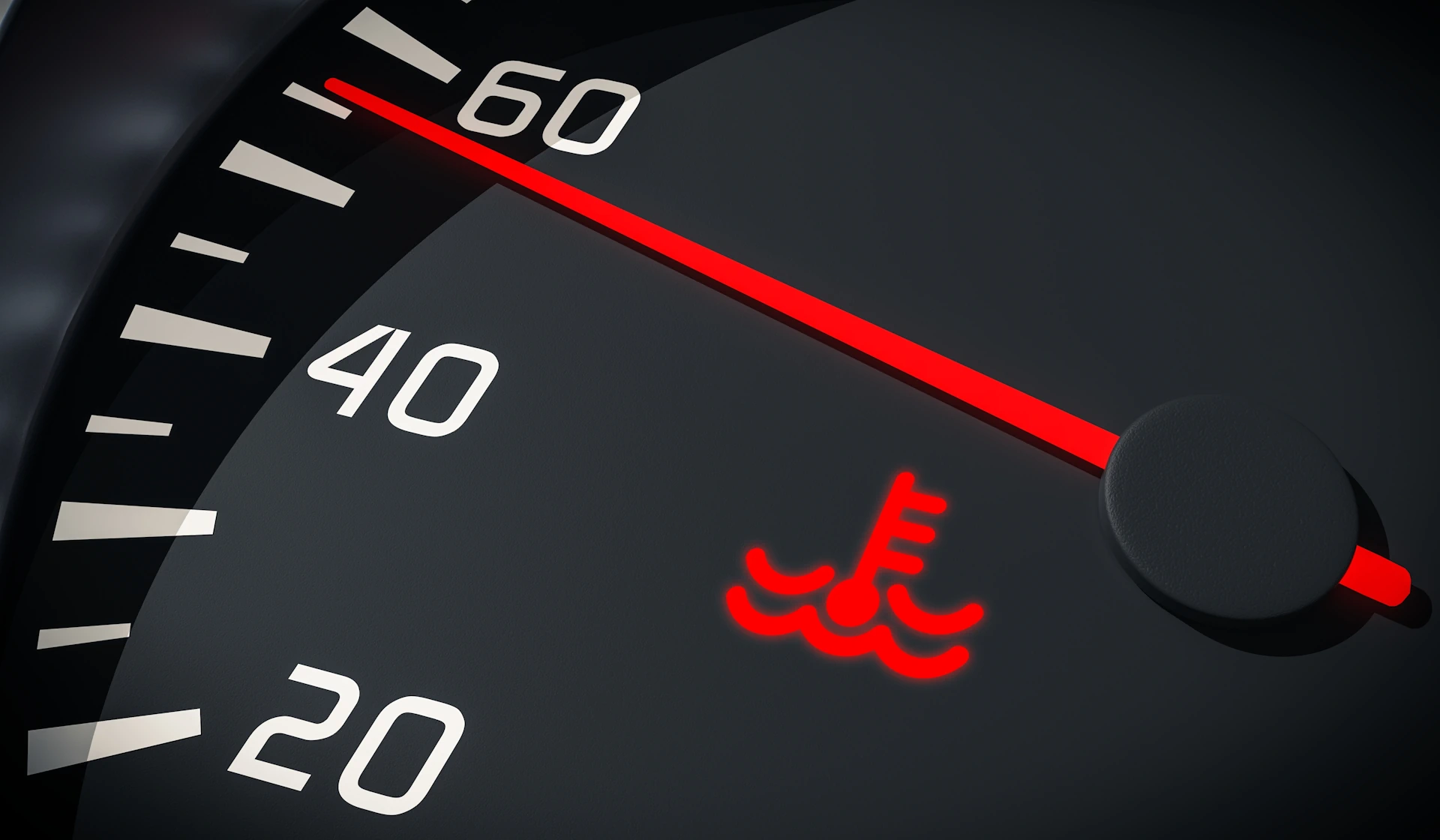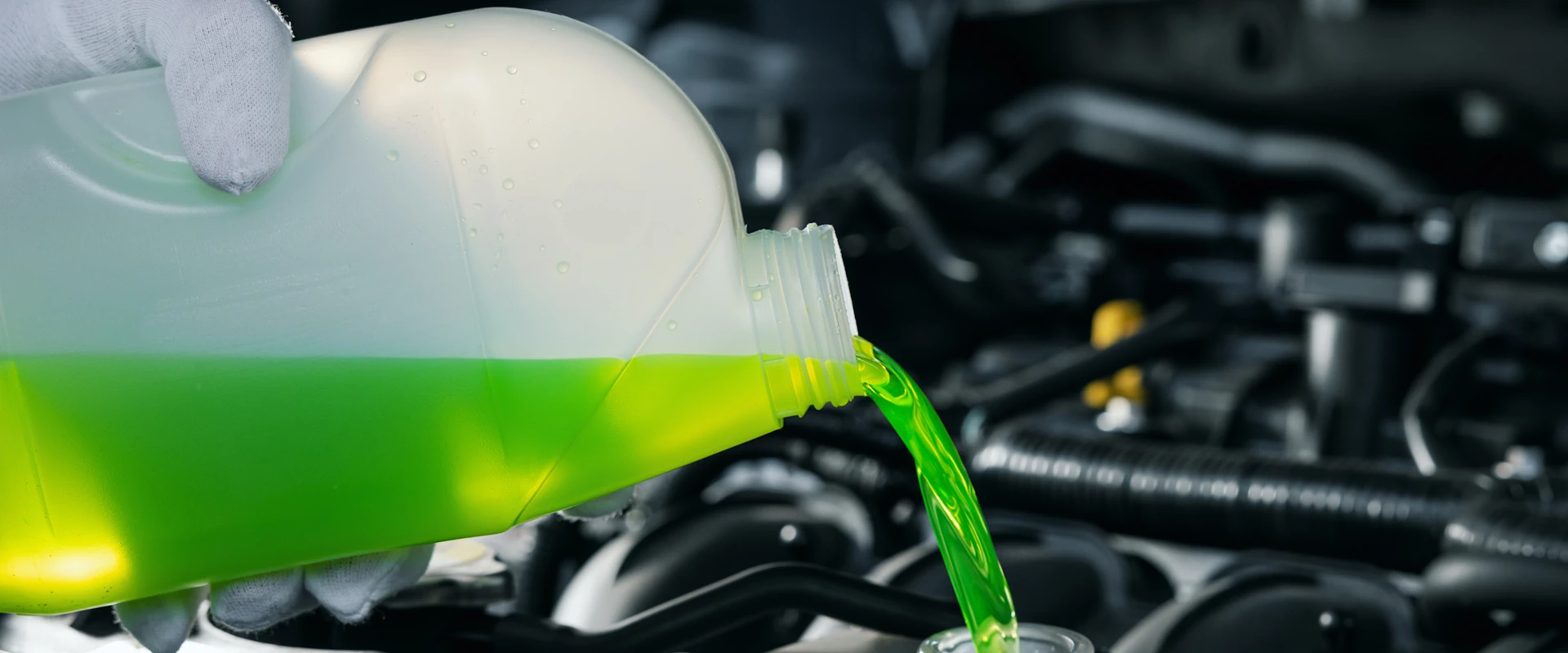What Does Engine Coolant Do & Why Does It Matter?
Published on: Tuesday, 21 October 2025 | Author: Jessica Bird
When it comes to looking after your car, it’s easy to focus on the obvious things – tyres, oil, fuel and maybe the occasional wash. But engine coolant is one of the most-often overlooked fluids under your bonnet, yet it’s also one of the most important! But why is it important?
Well, this colourful liquid plays a huge role in keeping your engine healthy and your car running smoothly, yet many drivers aren’t entirely sure what it does or why it matters. So, let’s take a closer look at what engine coolant is, how it works, and why topping it up (or replacing it when needed) is essential for every UK driver.
What exactly is engine coolant?
Engine coolant, sometimes called antifreeze, is a specially formulated liquid that circulates through your car’s engine and cooling system. It’s usually a mixture of water and antifreeze (ethylene glycol or propylene glycol), which are usually brightly coloured and therefore give the coolant that distinctive bright colour – often pink, green, blue, or orange depending on the type.
Unlike plain water, coolant has properties that make it ideal for controlling engine temperature in all seasons. This is because it doesn’t freeze in winter, and it doesn’t boil away in summer. In other words, it’s designed to handle the extreme conditions that your car goes through on a daily basis in the UK.
How does engine coolant work?
Internal combustion engines work by burning fuel – and as you’re likely aware, burning anything tends to generate a lot of heat! If that heat isn’t controlled, the metal parts of your engine can expand, warp, or even seize up. And this is where coolant comes in very handy.
The coolant system makes sure that coolant flows around the hottest parts in your engine in order to absorb that heat and release it out of the radiator at the front. The heat’s released into the air, and the now-cooler liquid flows back to the engine to absorb more heat. This is practically the same way that any “liquid cooled” system operates.
This constant cycle keeps your engine at a steady operating temperature, preventing it from overheating in traffic or freezing solid during frosty mornings.
On top of that, coolant contains special additives that protect the inside of your engine from corrosion, rust, and scale build-up. So, while it’s keeping things cool, it’s also acting like a protective shield against long-term damage.
Why is engine coolant so important?
It’s easy to underestimate how much your engine relies on coolant. Those without a great deal of experience with mechanical systems often assume that mechanical systems run continuously without any byproducts. But even without the heat generated from combustion, the amount of friction in an engine (even with clean engine oil) quickly generates a surprising amount of heat!
And the converse is also true, if an engine gets too cold, the parts struggle to operate as efficiently – so coolant keeps your engine in a perfect Goldilocks zone of temperature. Here are the key reasons why coolant matters:
1. Prevents overheating
Engines naturally get hot, especially during long drives or when stuck in motorway traffic. Without coolant, the temperature can rise to dangerous levels, leading to breakdowns or even permanent damage.
2. Protects against freezing
UK winters can be unpredictable. Coolant stops the liquid inside your engine from freezing on cold mornings, which means your car will start smoothly and run properly even when the temperature drops. If you’ve ever put a bottle in a freezer and found it cracked open the next day, you’ll understand why you never want liquid freezing in your engine!
3. Reduces corrosion
Engines contain a lot of metal parts that are in constant contact with liquid. Coolant prevents rust, corrosion and limescale from forming, keeping your cooling system clean and efficient.
4. Extends engine life
Essentially, by managing temperature and preventing damage, coolant not only helps your engine to actually run on a daily basis, it helps your engine last a lot longer.

What happens if you don't look after your coolant?
Neglecting coolant is one of those things that might not cause problems straight away but, over time, it can have serious consequences. Old or low coolant can lead to overheating, which may cause your head gasket to fail (one of the most costly engine repairs around).
You might also notice signs like:
- The temperature warning light on your dashboard.
- Steam coming from under the bonnet.
- Strange smells, often sweet or syrupy, caused by leaking coolant.
If you ever spot these warning signs, it’s important to get your car checked as soon as possible.
How often should you check coolant levels?
Most car manufacturers recommend checking coolant levels at least once a month, and before any long journey. This might seem excessive to many drivers but, in reality, it only takes a minute; simply open the bonnet and look at the coolant reservoir, which is usually a translucent tank with “min” and “max” markings on the side.
If the level is below the minimum line, you’ll need to top it up. Always use the correct type of coolant for your car (check your vehicle handbook if you’re not sure), and never just add plain water.
Coolant itself doesn’t last forever either. Over time, its protective properties wear out, so most manufacturers advise a full coolant change every two to five years, depending on your vehicle. When you bring your car to Tyre Pros for servicing, we’ll always check your coolant and advise if it’s time for a change.
Do different cars use different coolants?
Yes, not all coolants are the same. The colour is usually a good indicator, but it’s not foolproof. Modern cars often require specific formulas that are designed for their engine materials and cooling systems. Using the wrong coolant could reduce its effectiveness or even cause damage.
At a pinch, another type of coolant would be better than no coolant at all, but it’s always safest to stick to the type recommended by your manufacturer. At Tyre Pros, our technicians can quickly identify and supply the right coolant for your car, so you can drive away with complete peace of mind.
Coolant levels and seasonal driving in the UK
UK weather can be notoriously unpredictable – we can go from a frosty morning to a surprisingly warm afternoon on the same day. Coolant is one of the few fluids in your car that’s prepared for all conditions.
In summer, it stops your engine from boiling over in heavy traffic or on long drives to the coast and, in winter, it ensures your engine doesn’t freeze with plummeting temperatures. And it’s important to work your coolant checks into your general maintenance routine.
Many drivers only think about their coolant when something goes wrong, but when it does go wrong, an overheated or frozen engine is usually something gone very wrong – so make sure it never gets to that point by regularly checking your coolant levels and opting for regular servicing and maintenance at your local Tyre Pros centre.
Our experts are always on hand to help with MOTs, annual services, and anything else you might need – get in touch with your local centre today.




